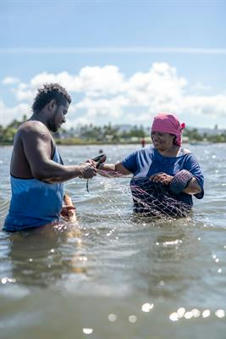Human rights matter for marine conservation because people and nature are inextricably linked. A thriving planet cannot be one that contains widespread human suffering or stifles human potential; and a thriving humanity cannot exist on a dying planet. (...) We argue that adopting a human rights-based approach to marine conservation, that is integrating equity as a rights-based condition rather than a charitable principle, will not only help meet legal and ethical obligations to respect, protect, and fulfil human rights, but will also result in greater and more enduring conservation impact.
Research and publish the best content.
Get Started for FREE
Sign up with Facebook Sign up with X
I don't have a Facebook or a X account
Already have an account: Login
Revue de presse et du net par le Pôle de partage des connaissances S&T de l'Office français de la biodiversité
Curated by
DocBiodiv
 Your new post is loading... Your new post is loading...
 Your new post is loading... Your new post is loading...
|
|












Smallhorn-West, Patrick and Allison, Edward and Gurney & al. Frontiers in Marine Science Vol 10,2023, https://doi.org/10.3389/fmars.2023.1089154